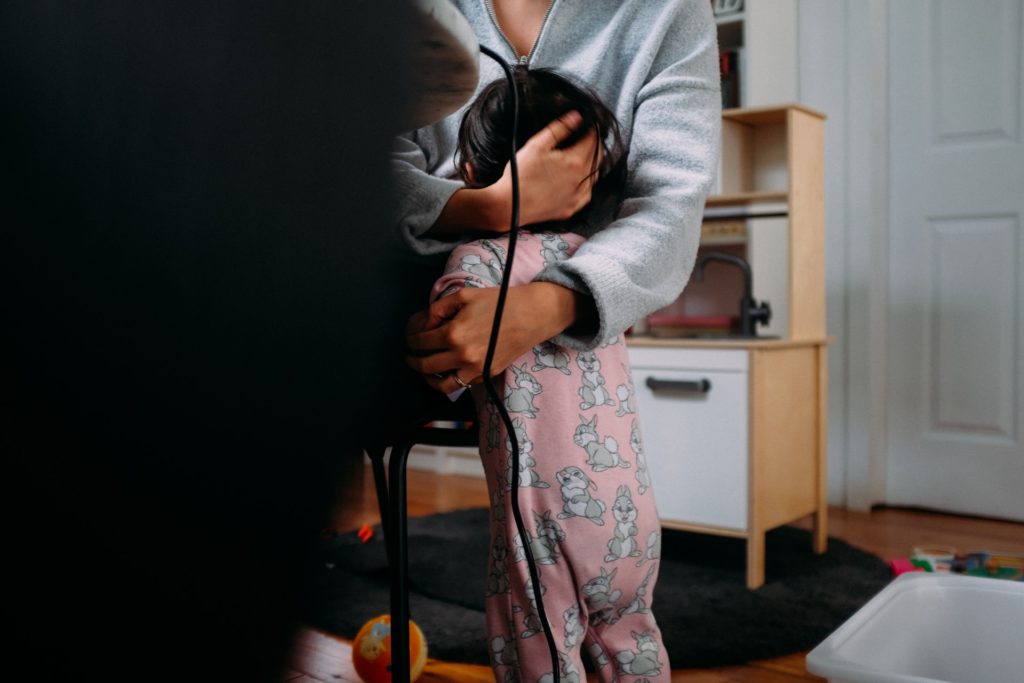Are you guilty of overprotective parenting? Parents are always looking for the best way to raise their kids. Some parents believe in being overprotective of their children while others are more lenient. What is the right way? We all want what’s best for our children, but how do we know what that is?
This article will explore these questions and talk about how overprotective parenting can actually be detrimental to a child.
What is Overprotective Parenting?
Overprotective parenting is a style of child-rearing that has become increasingly popular in the past decade. This style of parenting can be defined as an approach to child-rearing, which involves shielding children from any unpleasant experience or anything that could pose some type of threat.
The term overprotective parenting was created by psychologist Dr. David Elkind because he noticed an increase in parents who were providing their children with constant protection and sheltering them from many risks, thus creating what he refers to as “the bubble boy” syndrome for kids. He said it’s important for parents not to do this because they are depriving their children of opportunities to develop skills needed later on in life when there are inevitable difficulties.

What are the signs of overprotective parenting
There are four ways overprotective parenting is often displayed in the home, and those include:
1) sheltering your child from emotional harm;
2) protecting your child from physical danger;
3) intruding on your child’s privacy; and
4) limiting opportunities for exploration.
Parents who engage in these types of behaviors may do so because they feel as though it will shield their children from any pain or discomfort that could occur if they were to let them go out into the world alone. The truth, however, is that this style of parenting leaves very little room for a young person to acquire what Dr. Elkind calls “the basic building blocks of adult competence.”
What are the causes of overprotective parenting
Overprotective parenting can have many causes, including the following
1) Parents are overly indulgent – Some parents may become too reluctant to say no to their children due to fear that they will not receive the constant approval and praise that they crave. When this happens, these kids continue to ask for more and more because they know that regardless of what request is made of them, mommy or daddy will always say yes. There comes a point when saying yes at every turn truly does far more harm than good because children never learn how bad it feels to make an honest attempt at something but fail
2) Lack of discipline – Other reasons why overprotective parenting may be taking place include parents who do not want to establish rules, boundaries, and limitations for their children because they are afraid that it will cause them to become rebellious. So instead of receiving the guidance needed in order to grow into responsible adults, kids are spoiled with material objects or put on a pedestal to be admired by all.
3) Abuse – Another reason why overprotective parenting may take root is if the child has experienced some sort of abuse at home. Though this may sound counterintuitive because abusers are typically known for being distant in their relationships with their children, there are cases where parents who have been physically abusive towards one another also engage in overprotective parenting when they believe doing so will help keep their children from getting hurt in the mix of things.
Overprotective parents and the impact on children
Overprotective parenting can have a major impact on children because it prevents them from gaining the skills needed later on in life when they leave home and go out into the real world. As Dr. Elkind suggests, overprotective parents deprive kids of opportunities to develop competence and autonomy, which is why many college-aged adults are unable to function properly without their parents providing for them. This may affect young people who pursue higher education or enter the workforce because employers typically require employees to possess self-sufficiency due to the fact that one of the primary goals of any business is profit, which cannot be accomplished if new hires need constant supervision.
How to be a good parent without being overprotective
It is possible for parents to teach children independence without being overprotective. The best way to raise a child who knows how to be independent while still maintaining a healthy relationship with their parents is by providing them with the right amount of support and demonstrating clear expectations.
The idea is that young people should be given a certain level of leeway when it comes to making decisions since they will have more control over what choices they make in life once they become adults, but there are limits as well. For example, teenagers need supervision when it comes to driving because this skill requires years of experience behind the wheel before one can truly feel comfortable on their own.
The benefits of not being an overprotective parent
One of the benefits of not being overprotective as a parent is that children will be able to learn how to make decisions on their own. When parents do not hover over young people and instead wait for them to come up with some good ideas on their own, it can help kids establish mental strength which makes problem-solving less stressful later in life.
Another benefit of not being overly protective is that children will learn how to remain calm when faced with difficult situations because they will know what steps need to be taken in order to find a solution that works best for everyone involved. Finally, children who are given freedom become more responsible adults, which means they are less likely to engage in risky behavior such as unprotected sex or drinking alcohol underage.
Why you should stop being an overprotective parent now
One of the reasons people should stop being overprotective parents is because it does not prepare children for real-life situations. Overprotective parents rarely allow their children to do things that are considered dangerous such as riding a bike or playing contact sports, and this may cause young people to grow up believing that the world is a very scary place which can lead to anxiety and depression later on in life. As Dr. Kurk explains, parenting needs to be done with love and respect rather than fear and control, because kids will often experience psychological trauma if they believe someone is trying to control them instead of helping them learn from their mistakes
Conclusion:
The benefits of not being an overprotective parent are many. Your children will be more likely to grow up healthy, happy, and successful if they have the opportunity to take risks without you hovering too close. You’ll also feel less stressed out about their safety since your stress levels can affect them as well! So stop reading this blog post right now and go spend some time with your kids. We promise that it’ll make both of you happier in the long run!

